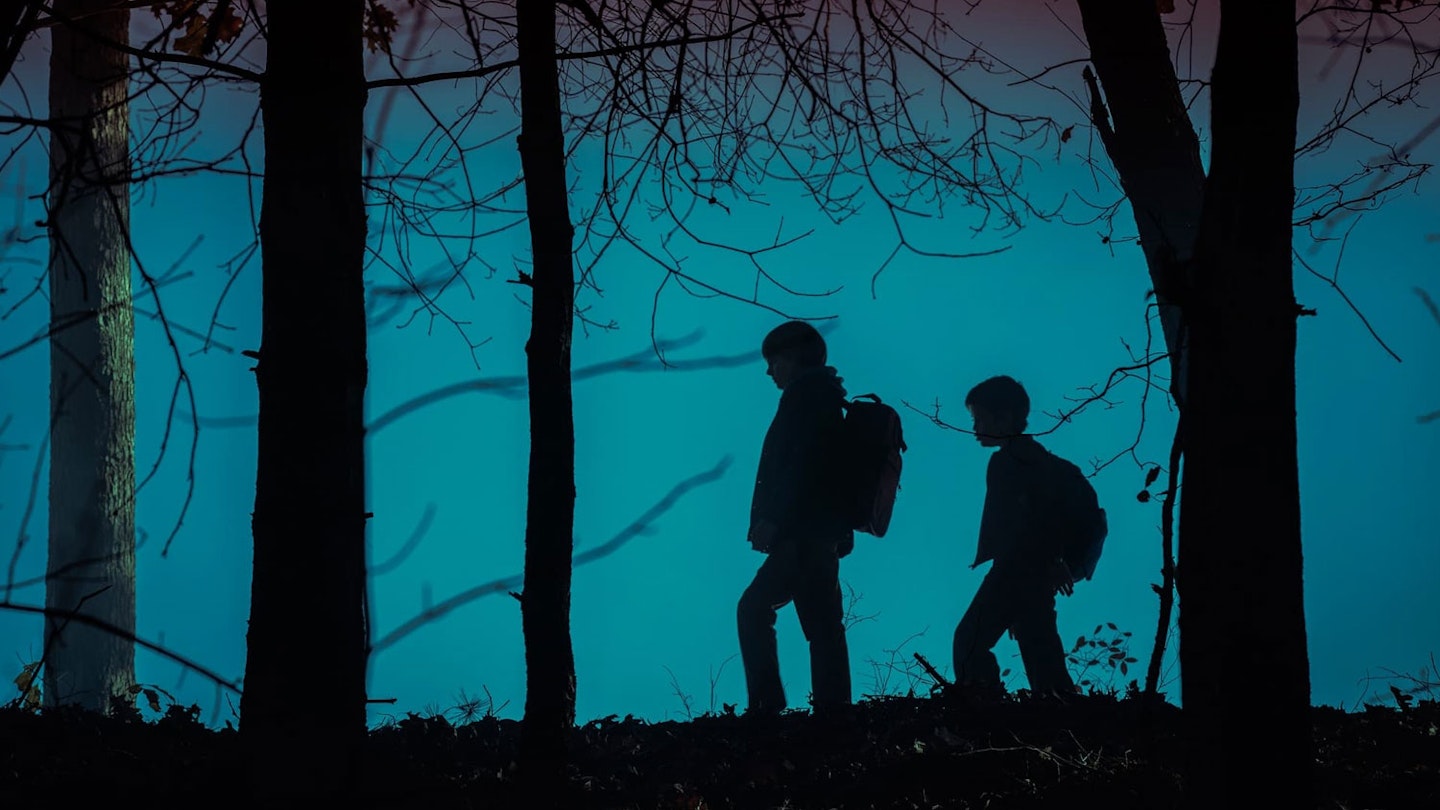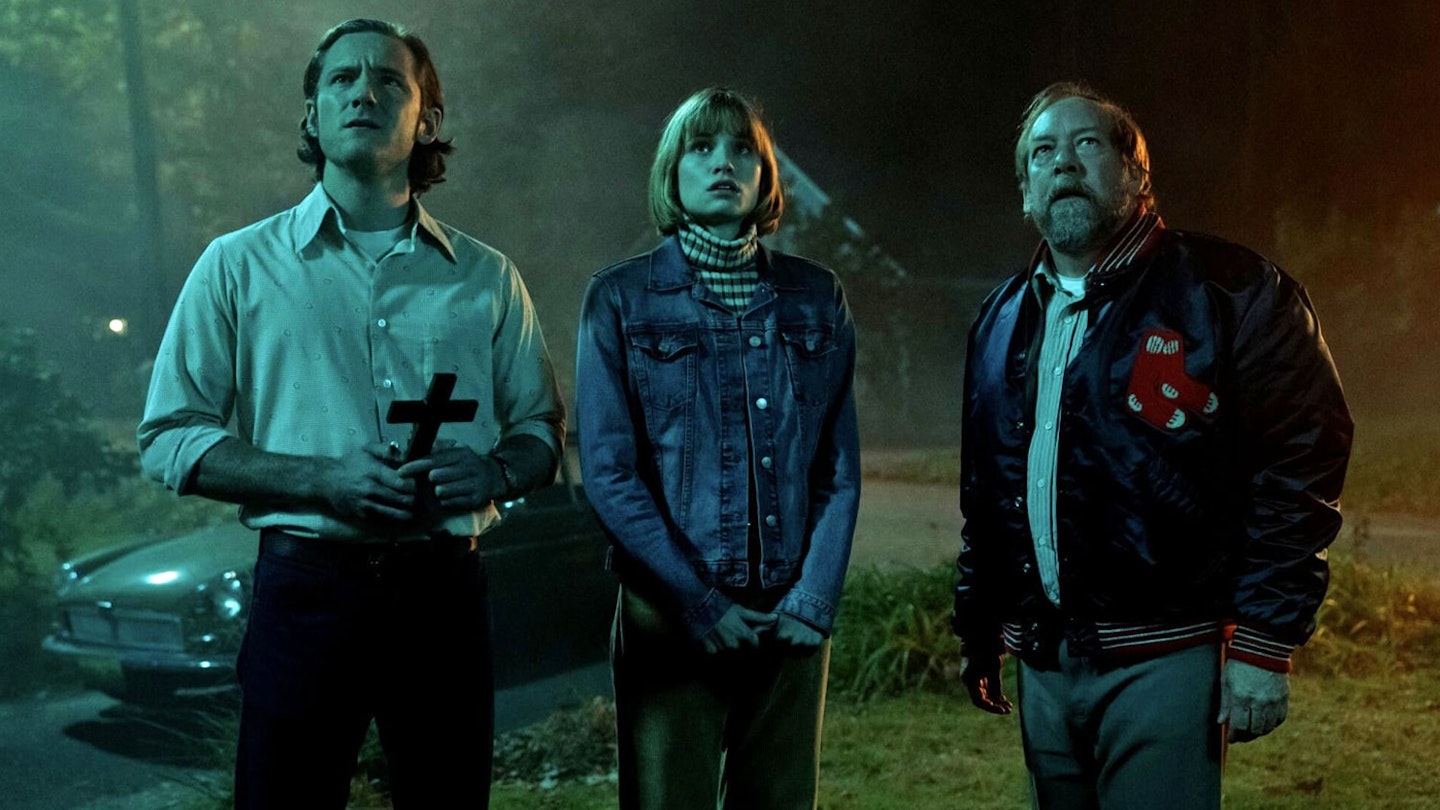At long (long, long, long, long, long) last, Gary Dauberman’s adaptation of Stephen King’s Salem’s Lot is here, after a delay so lengthy that it sparked fears that it might become the latest Warner Bros. movie to fall foul of WB chief David Zaslav’s giant magnet. Nothing kills vampires faster, after all, than deletion for tax purposes.

A fate worse than death averted, the sheer scale of the delay (it shot in 2021, and was originally meant to come out in 2022, as evidenced by the copyright text at the end of the movie) led tongues to wag about the movie’s quality. Was Salem’s Lot a big old stinker? Had Dauberman – making his second directorial feature here after Annabelle Comes Home, plus his sterling work adapting King’s words for the big screen with both of Andy Muschietti’s It movies (and as a screenwriter on various Conjuring flicks) – made a vampire film that, simply, sucked?
The simple answer is no. Although there’s a more complicated answer at play here, too. There’s plenty to admire about the first big-screen adaptation of King’s story of a small New England town that is slowly overrun by vampires, even if it doesn’t do enough to escape the shadow of Tobe Hooper’s 1979 made-for-TV version.
There’s a sense that a much longer, and perhaps more satisfying, cut of the film exists.
Interestingly, for a film from a screenwriter-turned-director, its biggest successes are visual. While there’s nothing that matches the shivery, sewn-to-your-subconscious majesty of young, vampirised Ralphie Glick floating through the fog to tap-tap-tap at the window in Hooper’s take (although that image is revisited, if somewhat less effectively), there’s quite a bit of imagination displayed by Dauberman and his DP, Michael Burgess – a slick bit of shadowplay reveals that two characters aren’t as alone as they thought; a multitude of bright-eyed vampires appear, dotted against the night sky, to emphasise the sheer scale of the problem in Jerusalem’s Lot. While the entirely brand-new finale — one of the most effective changes made by Dauberman, who tinkers with certain characters’ fates, some of which will please King fans, some of which will have them reaching for the garlic and crucifixes — is satisfyingly action-packed.
It’s other areas that let the side down. While the performances are mostly fine (Pilou Asbæk, as Straker, the suave sidekick to head vampire Barlow, is miscast), things move at such a clip that it’s hard for any character — even the nominal leads, Lewis Pullman’s Ben Mears and Jordan Preston Carter’s Mark Petrie — to make an impact. King’s book was a sprawling, Peyton Place-style soap opera that just happened to be swarming with bloodsuckers, but that meant he could take his sweet time setting up and developing characters, making you feel the pinch when they perished, or succumbed to the dark side. Here, that doesn’t happen. There are simply too many balls to juggle. Characters are introduced, and then disappear for what seems like an eternity. When one minor character, glimpsed briefly in the opening act, returns at the heart of a major sequence towards the end, you’d be forgiven for not realising, or remembering, who they are at all.
There’s a sense that a much longer, and perhaps more satisfying, cut of the film exists; one that restores excised subplots (Ben’s fascination with the town’s spooky centrepiece, the Marsten House, is hugely important in the novel, and here is reduced to an afterthought), and puts flesh on the bones of scantly drawn characters. Perhaps that giant magnet was put to work, after all. If so, that would be a huge shame, as while this is a solid adaptation of one of King’s greatest novels, there’s a nagging sense that there’s a much better film here, if only it were allowed to properly breathe.
